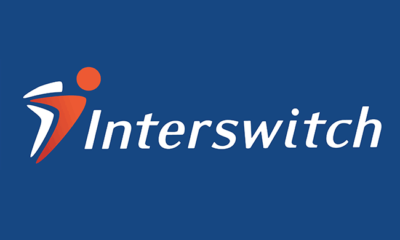Malware, a malicious software designed to disrupt, damage, or gain unauthorized access to a computer system, is one of the most common cyber threats computer users face today. While malware can affect any operating system, Windows users are among the most vulnerable.
According to the data analyzed by the Atlas VPN team and based on the State of Malware report by Malwarebytes, in 2020 alone, devices with Windows operating systems were affected by over 111 million malware infections.
Out of all of the Windows malware threats detected last year, 83% or nearly 92.3 million were found on consumer devices, while 15% or 16.7 million were discovered on business devices. The remaining 2% of the malware cases were unspecified.
Despite the impressive number of Windows malware detections in 2020, such threats actually dropped by 12% compared to 2019.
Malware infections affecting consumer devices fell by 11%, from 103.5 million in 2019 to 92.3 million in 2020. As workers traded their corporate offices for home ones, business device infections decreased by 24%, from 22 million in 2019 to 16.7 million in 2020.
The decline in malware infections might signify that cybercriminals have found other more effective methods to exploit victims online.
HackTool is the fastest rising malware threat
In 2020, we saw a fall in malware infections affecting Windows operating systems. However, despite a general decline, certain types of malware thrived last year.
HackTool, a type of malware used by hackers to gain unauthorized access to a user’s computer, saw the biggest increase in new cases detected on Windows last year when compared to 2019. Infections with HackTool spiked by 150%, from 7.4 million to 18.4 million in a single year.
Businesses experienced the most significant rise in HackTool detections last year. In total, 2.6 million Windows HackTool infections were found on business devices in 2020 — a 173% growth from 937.9 thousand cases in 2019.
In the meantime, consumer devices were affected by 15.9 million HackTool infections last year. It represents a 147% growth from 6.4 million such cases in 2019.
Other malware types that saw a surge last year include Rogue (117%) and Spyware (28%), which help criminals track and collect information on the victim.
However, the most common Windows malware threat last year was adware — software that displays unwanted advertisements on people’s computers. It accounted for 32% or 35.5 million Windows malware cases in 2020, a 22% drop from 45.7 million in 2019.
Windows adware threats were the most prevalent on consumer devices, where 31.5 million adware infections were recorded last year. Simultaneously, businesses had close to 4 million infections with adware malware in 2020.
Trojan malware, which disguises itself as legitimate software and helps hackers take control of the infected computer, also continued to plague Windows operating systems in 2020.
In total, 29.9 million Trojan infections were detected on devices running Windows, which made up 27% of all such infections last year. However, compared to 2019, when 38.5 million Trojan cases were discovered, Trojan infections dropped by nearly 23%.
While 23.7 million Trojan infections affected consumers, 6.1 million infections targeted businesses. In fact, Trojan was the most common malware threat faced by businesses last year.
How to guard against malware
Malware is one of the most common threats. As such, it is easy to catch, while its repercussions can be devastating. However, there are a few things you can do that can help you protect your devices from malware.
- Keep your software up to date. Updated software contains all the latest security patches making it harder for cybercriminals to exploit system vulnerabilities.
- Be careful about your downloads. Downloads are one of the main ways to spread malware. Therefore, before pulling a file from the internet, always ask yourself two questions: do you really need it, and do you trust the website or the person you are about to download the file from.
- Do not click on suspicious links. Never click on pop-ups and links you are unsure of. They may lead to malicious websites that can install malware on your device.
- Limit file-sharing. Be wary of file sharing sites as they offer little protection against malware, which might be hiding in files, such as movies, games, and other programs.
- Use a VPN. Virtual private networks, such as Atlas VPN, have security features in place that block malicious ads and protect you from entering unsafe websites. This way, you have less chance of cashing unwanted viruses while online.


 Forex3 weeks ago
Forex3 weeks ago
 Naira3 weeks ago
Naira3 weeks ago
 Billionaire Watch3 weeks ago
Billionaire Watch3 weeks ago



 Naira3 weeks ago
Naira3 weeks ago






 Naira3 weeks ago
Naira3 weeks ago




 Naira2 weeks ago
Naira2 weeks ago






 Naira2 weeks ago
Naira2 weeks ago




 Naira4 weeks ago
Naira4 weeks ago





















